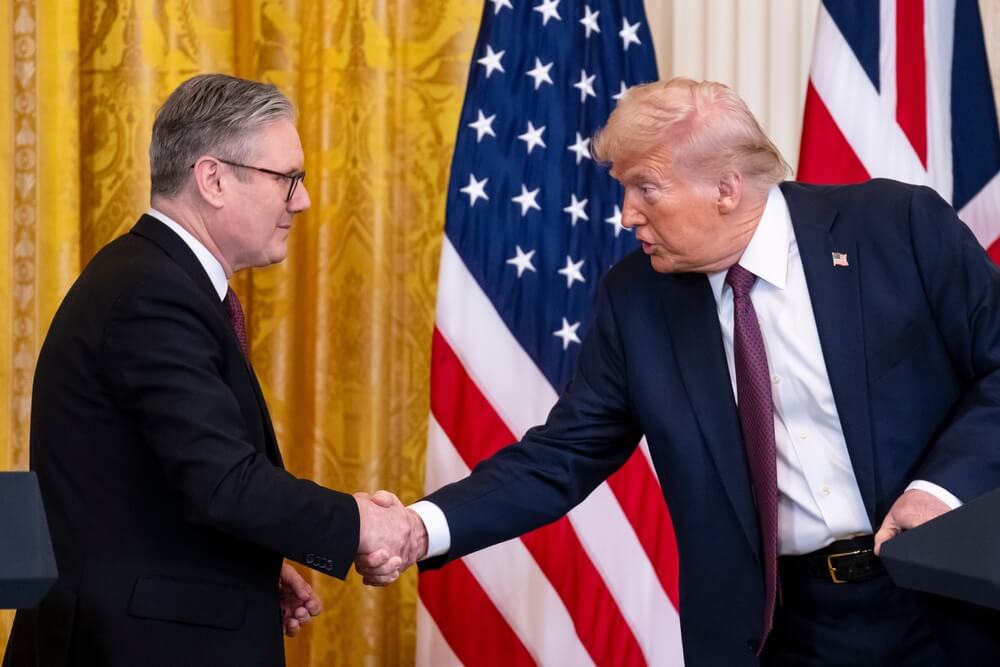China has sharply criticized the United Kingdom over its recent trade agreement with the United States.
NewsBand reported that the duo signed a bilateral pact in Washington last week after months of confidential negotiations between both governments.
Under the new deal, British carmakers will enjoy reduced US tariffs from 27.5% to 10% on up to 100,000 vehicles annually.
UK steel and aluminium exports will also benefit from tariff exemptions, easing previous trade barriers.
However, the agreement imposes strict national security conditions set by the US Department of Commerce.
These conditions require companies to disclose full supply chain data and ownership structures before accessing US markets.
Experts widely interpret the conditions as an attempt to exclude Chinese firms from transatlantic industrial partnerships.
China’s Foreign Ministry issued a formal protest, calling the deal discriminatory and politically motivated.
Spokesperson Wang Wenbin said bilateral trade deals should not target or damage third-party nations.
He accused the UK of aligning with the US-led strategy to economically contain China.
Beijing claims Washington is coercing allies to sever economic ties with Chinese suppliers and technologies.
Chinese officials warned that such pressure may damage the foundation of international trade cooperation.
In response, China is expanding its “dual circulation” strategy to secure national industrial resilience.
This approach prioritizes domestic innovation and reduces dependence on foreign inputs, especially from Western countries.
State-owned enterprises have received new orders to increase sourcing from domestic suppliers.
The move targets critical sectors such as green energy, aerospace, telecommunications, and electric vehicle manufacturing.
The Ministry of Industry and Information Technology announced new subsidies to promote local supply chain capacity.
China also plans to strengthen regional trade links through the Regional Comprehensive Economic Partnership (RCEP).
Senior economist Zhang Yansheng called the UK-US deal “a Trojan horse for economic exclusion.”
He said the clauses act as “poison pills” by embedding political criteria into commercial transactions.
UK government officials defended the deal as a win for British industry and long-term economic growth.
Prime Minister Keir Starmer said the agreement will boost high-value exports and protect skilled jobs.
The British car industry welcomed the reduced tariffs but voiced concern over potential supply chain disruptions.
Industry groups warned that decoupling from China could increase production costs and delay shipments.
A UK government spokesperson insisted the country remains committed to stable relations with China.
They described Britain’s approach as “pragmatic, not ideological,” aiming to balance security with open trade.
Earlier this year, Chancellor Rachel Reeves travelled to Beijing to resume suspended economic and financial talks.
That visit was intended to rebuild trust after years of strained UK-China relations.
Chinese officials now see the trade deal as undermining those efforts and damaging bilateral progress.
They accuse London of “strategic short-sightedness” and warn of possible commercial retaliation.
Beijing is reportedly reviewing future participation in joint UK-China projects, including green technology initiatives.
The UK’s Foreign Office declined to comment on any possible Chinese countermeasures.
Analysts say the deal marks a new phase in global economic realignment led by US-China rivalry.
They expect Beijing to accelerate policies encouraging domestic consumption and technological independence.
Observers also note growing tension in Europe as countries navigate competing US and Chinese interests.
Trade experts warn that global supply chains may become increasingly fragmented due to such geopolitical pressures.







